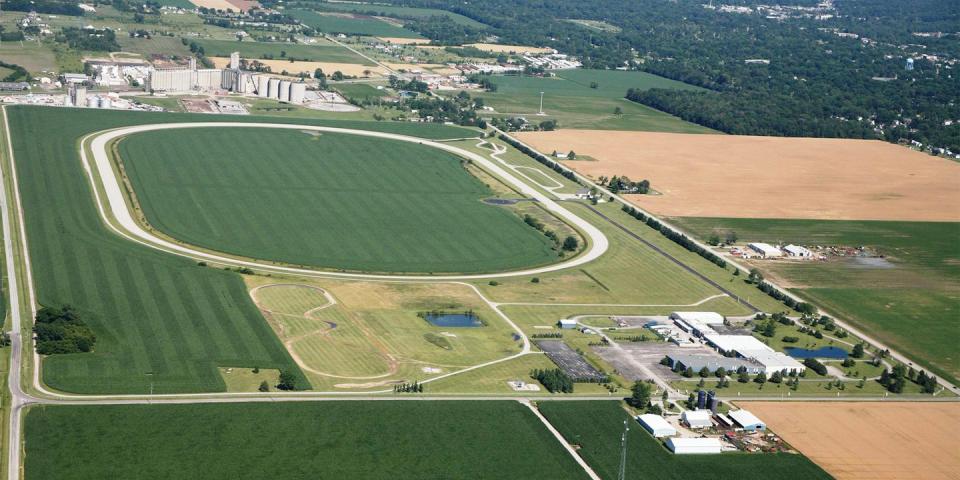Toyota Will Build New Proving Ground for Autonomous Tech

Amid high demand for places to test automated-vehicle technology, Toyota unveiled plans late last week to construct its own private proving ground.
Executives with the Toyota Research Institute (TRI), the company’s research-and-development arm, said they expect to open a 60-acre facility located in southeast Michigan by October. Construction permits were filed last week, and work begins immediately.
Once it is finished, the proving ground will contain a 1.8-mile highway loop and a cityscape, both of which will enhance testing of driving scenarios that are too dangerous to attempt on public roads. TRI engineers say the space will speed the development of Guardian, Toyota’s own advanced driving-assist mode, which will help drivers avert imminent dangers.
“By constructing a course for ourselves, we can design it around our unique testing needs and rapidly advance capabilities,” said Ryan Eustice, TRI’s senior vice president of automated driving. “This new site will give us the flexibility to customize driving scenarios that will push the limits of our technology and move us closer to conceiving a human-driven vehicle that is incapable of causing a crash.”
Guardian’s development is noteworthy because the mode stands apart from others being developed throughout the auto industry. Unlike the advanced assist systems many other automakers are developing that take control from human drivers under varying conditions, Guardian instead acts something akin to an emergency backstop; it’s always running in the background, but drivers will never notice it unless the Guardian system senses an imminent crash. Then it will take control and attempt to avoid or mitigate hazards.
TRI originally envisioned Guardian as a safeguard for human drivers. In recent months, chief executive officer Gill Pratt has indicated, Guardian may also serve as an essential backup for fully automated driving systems under separate development.
TRI will lease the land for its facility from a private developer in Ottawa Lake, Michigan. The site has operated as a proving ground available to a variety of industry suppliers and companies for years. TRI already has operations in Ann Arbor, Michigan, roughly 45 minutes away from the planned proving ground, as well as in Cambridge, Massachusetts, and Silicon Valley. Last month, it established a separate company, Toyota Research Institute–Advanced Development (TRI-AD), which acts as a bridge between the research of TRI and the production-focused main Toyota corporation.
Toyota Launches Venture Capital Subsidiary With $100 Million to Start
After Crash, Arizona Governor Suspends Uber Self-Driving-Vehicle Testing
The development comes at a time when Toyota already uses closed-course venues such as Mcity and the American Center for Mobility in Michigan and GoMentum Station in California for testing its tech. Those plans don’t change, a Toyota spokesperson said. But those facilities, open to many OEMs and suppliers, have gotten so popular that it’s become hard to book as much track time as desired. With its own dedicated facility, Toyota can accelerate its efforts to get these systems ready for real roads.
You Might Also Like

 Yahoo Autos
Yahoo Autos 